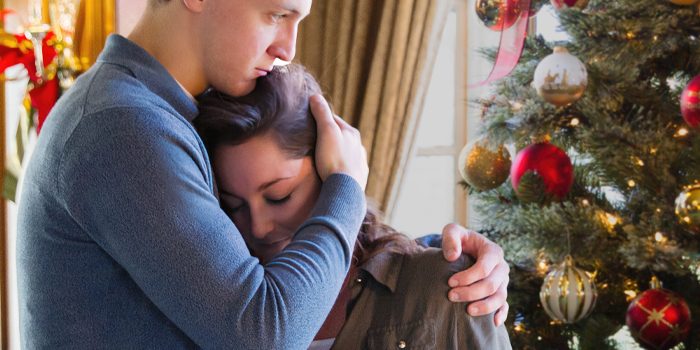Posted on December 11, 2023 by Mark Vande Braak, Ph.D, FT, MT-BC
Mental Health

Share
Other Blog Topics
With decades of experience walking alongside those experiencing trauma, loss, and grief, Dr. Mark Vande Braak answers questions about navigating grief through the holidays.
You have permission to grieve. Do not let anyone tell you something different. However, it is essential to be gentle with yourself. The anxiety and build-up to the holiday is very stressful and real. Structure each day as much as possible. Plan to start your day at a consistent time, use your alarm. Reach out to a trusted friend or family member for support. Accept invitations from others. Plan to do something out of your home that gives you a sense of accomplishment. It is alright to spend time remembering your loved one and the gifts that they gave you in life.
If you are trying to support someone experiencing grief and loss, often your words are less important than your presence. Avoid sayings such as “The first Christmas is the hardest” or “I know how you feel.” Every relationship and death are different. People generally want to say something to “fix” your grief. There is no fix. Grief is a process and a journey. Mentioning their loved one is not something you have to avoid out of fear of bringing the grief back to the surface. Trust me, they have not forgotten their loved one. We need to allow people to grieve. To support them in grief we should be willing to listen and be present. Simple statements such as “I am sorry for your loss” or “I’m praying for you and your family,” are often the best.
There is no right or wrong way to approach traditions. It is acceptable to do what feels best for you. Your traditions can be modified a variety of ways and still be meaningful. Instead of hosting the holiday, why not cater in or go out to eat? Instead of being in your home, why not take a short trip somewhere? If there is a meal planned at your home, why not set a place at the table for your loved one and then spend time sharing stories and reminiscing about your loved one? They can still be present with you in spirit.
Avoid overcommitting yourself but do not isolate. Participate in an activity for a set amount of time rather than not at all. Permit yourself to go for dessert at someone’s home rather than attending the entire meal. Allow yourself time and space when you need it. If there is an event you are not ready to participate in, try offering an alternative that feels more comfortable to you. You do not have to feel pressured to do anything.
We know Christ was born to save us from our sins. We also know that because of Jesus, death died on the cross for us many years ago. We celebrate Jesus’s birth. Set aside time for prayer. Read Biblical verses that you find comforting. Attend worship.
Remember that grief is a natural reaction to loss. We can grieve deeply for the void in our lives and that does not diminish our faith. Draw strength and comfort from your faith community.
Hear more from Dr. Mark on grief during the holidays on the Living the Faith podcast.
Dr. Mark is available to help anywhere in the United States via telehealth or in-person in Sioux Falls, South Dakota. Reach out today.
[email protected] | 605-271-1081 | lutheranfamilyservice.org/contact
More posts about Mental Health